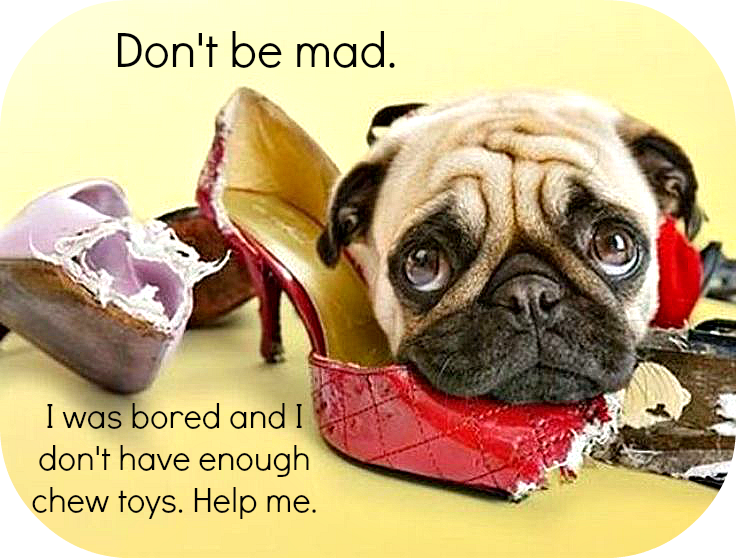You are here
Adopting a Puppy.
PUPPY BASICS – by Caroline Janczak
Adopting a new puppy can be an exciting event for any family, but it is work.
When you bring your puppy home, he’s probably going to be a little timid and stressed. He won’t be used to the unfamiliar smells and noises in your home. He also may miss his litter mates and his routine here at the store so he may display some anxiety and cry. The best thing you can do is continue to live your life normally but accept that you will have to make a few adjustments for the new addition to your family. Dogs are creatures of habit so try to have a schedule for feeding and going outside. Together you will adapt to your routine and lifestyle with a little patience. This is a baby so make sure he has quiet time to rest. His stomach may be upset for a few days so we do not recommend any diet changes. Make sure he is eating regularly and has fresh water. If he is under 3 -5 lbs make sure frequent small meals are eaten to prevent low blood sugar. We recommend you make an appointment with a vet within the first few days of getting your puppy.
You need to puppy-proof your house. This is a lot like child-proofing your home. Puppies can chew and swallow dangerous things. These items can poison them or get stuck inside them and they can die. Every vet can tell you numerous stories of the unusual items they have had to surgically remove. Puppies put everything in their mouth so make sure wires to electronics are up off the floor and inaccessible to your puppy. Anything toxic must be picked up and put in cabinets or containers that your puppy can’t chew open. Clothing and shoes should be picked up off the floor. Also, any small items that can be swallowed must be picked up, so make sure you scan the house for any of these items lying on the floor. If you have children, tell them to keep their toys picked up, or the puppy will chew on them. You also need to puppy-proof your back yard in the same way. Please make sure your fence doesn’t have any holes your puppy could squeeze through. Do not leave your puppy unattended outside. Puppies get loose, stolen, attacked. Local puppies have been carried off by predators!
We strongly recommend Crate Training. Your puppy should be safe in his crate when you can not watch him or are away. This is for his safety and to protect your home. Just as you would not let a toddler run around you home unattended, neither should a puppy. The crate should be their cozy den and for their safety. Designate an area of your house to be the “puppy area.” This is usually an area in the home with linoleum or tile, making it easier to clean up messes. This can be where you put the puppy’s cage, etc. It needs to be an area you can put the puppy while you’re gone or during the night. This will need to be especially puppy-proofed, because your puppy will spend most of their time there. Always remove a puppy’s collar when he is caged alone. They can hang themselves.
Keep a close eye on your puppy when his is out of his cage. You will need to watch that your puppy is not getting into anything inappropriate and watch his body language so you can take him out quickly when he shows signs of needing to go potty. For this reason, we recommend your do not give your new puppy free run of your home. Restrict his range using baby gates so you can keep track of what he is doing and catch mistakes before they can happen and become bad habits. Puppies learn bad habits quickly, so don’t let him do things that you don’t want him to do the rest of his life. For example, begging for food or jumping up on people when they come in the door. It is cute when they are a puppy, but when they grow up, it gets a little aggravating.
Puppies need to chew so keep a large variety of chew toys constantly on hand so you can redirect them from chewing other inappropriate items. Don’t let your puppy chew on things he’s not allowed to chew on, ever. You need to set clear and permanent boundaries in your home so that your puppy will know what he is and is not allowed to do.
At first, don’t leave your puppy alone for more than a few hours at a time. Actually, this is the longest a young puppy can hold his bladder. Also, a young puppy requires a lot of attention to keep it from developing troublesome behavioral problems. You don’t want your puppy to grow up to be a neurotic dog that tears up the house while you’re gone. If your family’s schedule means leaving for the better part of the day make sure you have someone who can come and check up on the puppy. This way the puppy can take adequate bathroom breaks and spend time bonding with humans and play. If you don’t have a family or friends who can do this, look into dog day care or a walker. Being left alone all day while you’re at work can cause a puppy to develop personality issues that can eventually lead to a future owner surrender which we don’t want to happen.
Theme by Danetsoft and Danang Probo Sayekti inspired by Maksimer


